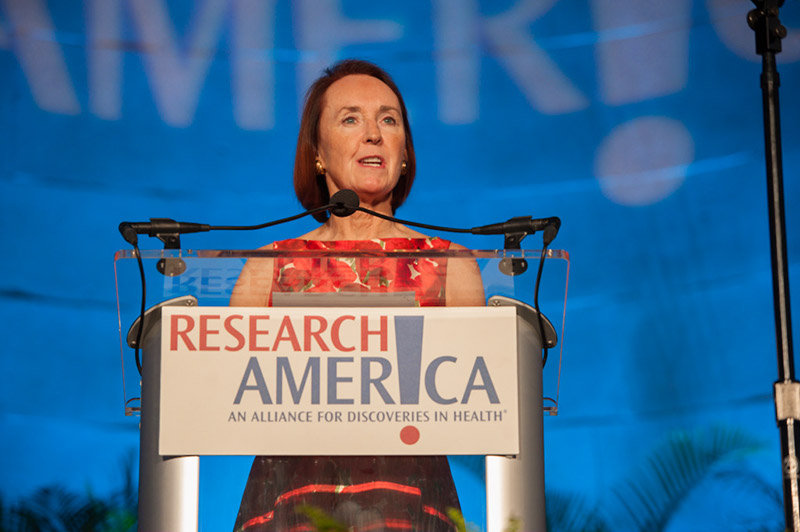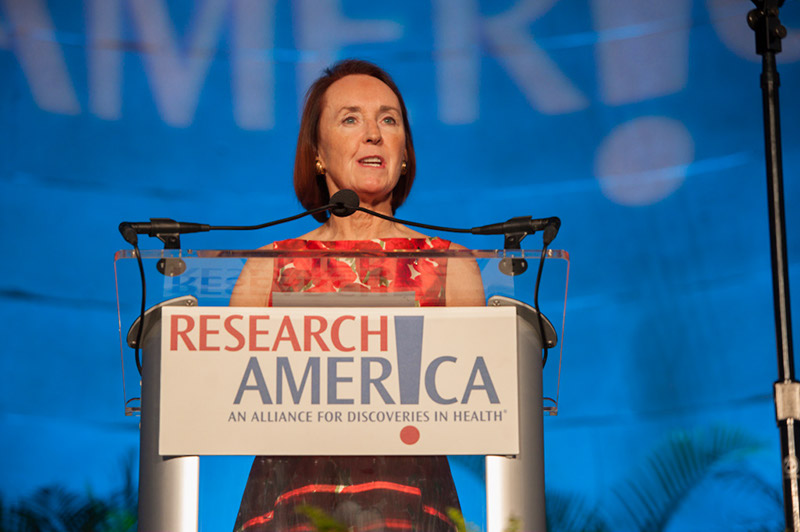Building trust, driving progress


Dear Research Advocate,
Partnering with the National Disease Research Interchange (NDRI), Research!America commissioned a survey released this week finding that not only do Americans strongly support organ and tissue donation for research, they believe it is important to encourage more people to donate for both medical and research purposes. Respondents admire those who donate for research as well as for transplant. We may be at an important inflection point with more research made possible because more people will donate.
Speaking of surveys, the AAAS Annual Meeting last week was jam-packed with programs about how the public trusts (or mostly trusts) science and appreciates scientific innovations…but this is complicated territory, and we simply can’t take public trust for granted. I have never seen such strong attendance at sessions aimed at putting what we know about public engagement to work, and I have never heard as many people talking about listening and engaging; about owning the privilege of being a scientist, of working in the public interest. Here is a brief roundup of new survey work presented at the conference. It captures the nuanced feelings of scientists and the public on key issues we all face.
I mentioned complicated territory: The 2020 Edelman Trust Barometer indicates growing distrust in four major, science-relevant societal institutions — government, media, NGOs, and business. These and other insights make this report a must-read.
Rare disease research is not only inherently important, but is emblematic of both the imaginable and unimagined benefits of science. Researching new medicines for rare diseases can lead and has led to new treatment options far beyond a particular rare disease, helping advance progress against such high-burden health threats as diabetes, obesity, and migraine. Research for Niemann-Pick Disease, as another example, has provided new defenses against Ebola.
Rare Disease Week (next week) includes a series of advocacy events leading up to Rare Disease Day (February 29, 2020). Join Research!America and partners for a reception honoring advocates for their critical role in the research ecosystem. Follow along all week on Twitter: #RareDC2020
Regarding the role of patients: As I’ve noted before, the Administration has taken steps to end fetal tissue research, including establishing a Human Fetal Tissue Ethics Advisory Board charged with re-adjudicating the use of fetal tissue in federally-funded research. As it stands, there are designated slots on the board for scientists, physicians, lawyers, and theologians, but not for patients.
Fetal tissue research (already highly regulated and thoroughly vetted without this new layer of scrutiny) has empowered life-saving progress since the 1920s, yet patients have no designated seat at the table for ethical discussions about this research. That’s unacceptable. The Department of Health and Human Services has now issued the call for nominations for the Board. If you are a patient, patient advocate, or a scientist (or perhaps all three!), please consider lending your time to this board. Get in touch with Ellie at [email protected] if we can be of assistance.
Sponsorships and individual tickets for our 2020 Advocacy Awards dinner are still available, but space is dwindling quickly. Email Katie Goode at [email protected] if more information would be useful. Get to know this year’s recipients with our online Q&As. This week, learn more about the National Multiple Sclerosis Society, recipient of the Paul G. Rogers Distinguished Organization Advocacy Award, and Dr. Bruce Alberts, recipient of the John Edward Porter Legacy Award, generously supported by Ann Lurie.
Sincerely,
Mary Woolley




